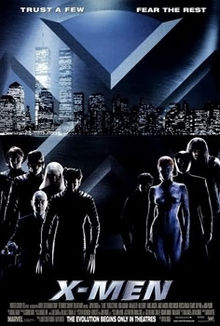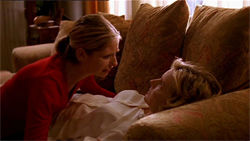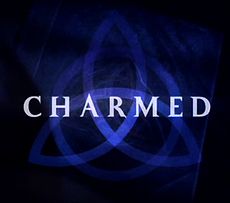 I stayed up late enough last night to catch Roger Ebert’s review of the new X-Men movie and it reminded me why I never listen to movie reviewers most of the time: they have no idea how to review a genre film.
I stayed up late enough last night to catch Roger Ebert’s review of the new X-Men movie and it reminded me why I never listen to movie reviewers most of the time: they have no idea how to review a genre film.
It’s not that I begrudge Ebert’s right to give a thumbs down, but why is it that the X-Men only received a minute of discussion when most movies on the show receive a lot more? I’ll tell you why: because it’s a comic book movie and people like Ebert are just too erudite to review these kinds of movies. In Ebert’s case, senility must also be a factor. He found the movie hard to follow. Better count your brain cells, Roger. He also complained there was too much focus on character development. Usually these anal retentive reviewers are complaining that there’s not enough character development and too much action.
Right now you’re probably thinking that I’m a rabid X-Men fan who will stand by his favorite mutants no matter how bad the movie may be. Wrong. I’ve never read an X-Men comic. I was a DC fan when I was younger. Green Lantern. Legion of Superheroes. Hawkman. Not X-Men. But while Ebert says the uninitiated would have problems following the movie, I had no problem at all. The X-Men is probably the best comic book movie since the first Batman, and I would hazard to say even better. This isn’t a bunch of guys in costumes taking each other on and trading one line zingers. This movie actually has depth, much more than any other comic book movie that’s been made. Not only should it be lauded for the effort of making its characters three-dimensional, it should be lauded for succeeding, with some minor exceptions.
The story is primarily told from the eyes of a teenage girl named Marie (aka Rogue), played by Anna Paquin, and Logan (aka Wolverine), played by Hugh Jackman. Rogue discovers early in the movie that she will drain the lifeforce out of anyone she touches and heads north, where she runs into Logan. Logan has the ability to heal very quickly from any wounds and has also been implanted with an indestructible metal, providing him with razor sharp claws. They are just two of many mutants in the world who are feared by the general public. A US senator (Bruce Davison) is leading the push to pass a bill that would force mutants to register. Professor Charles Xavier (Patrick Stewart) has hope that humanity will learn to accept mutants, but his old friend and now nemesis, Eric Lencher (aka Magneto), played by Ian McKellen, believes that the only recourse is to make sure mutants end up on top no matter what the cost. His mutants attack Wolverine and Rogue, but they are rescued by Xavier’s own X-Men, Storm (Halle Berry) and Cyclops (James Marsden).
Xavier runs a school for gifted youngsters, also a haven for mutants. He promises to help Wolverine unravel his past. The difference between mutants and superheroes is that mutants are persecuted, and in some cases a danger to themselves as well as others, whereas superheroes such as Superman were instantly idolized for their heroic abilities. The movie deals with this aspect in a thoughtful manner and the issue of racism, albeit on a simplistic level. Magneto as the villain is not just some guy who’s gone wacko like the villains in the Batman films. His motivations are very human. Unfortunately the mutants that have sided with him lack depth: the shape changing Mystique (Rebecca Romjin-Stamos), Toad (the Phantom Menace’s Ray Park) and Sabretooth (Tyler Mane) are all just two-dimensional baddies.
The X-Men is a very entertaining movie that’s well cast and well-plotted, balancing the character development and the action scenes. Don’t listen to the stuck up reviewers: they just don’t get it. And any die hard X-men fan I’ve spoken to has loved the movie and says it’s true to the original comic book legacy that inspired it. This X-Men virgin thinks it’s the best movie of the summer.
Gary Hilson is a writer, editor and digital media specialist for hire. He lives in Toronto.
 It’s been several weeks since “The Body” aired, and I’m still trying to digest the viewing experience. Suffice it to say, if this brilliant hour of television doesn’t earn Buffy The Vampire Slayer an Emmy nod, I don’t know what will.
It’s been several weeks since “The Body” aired, and I’m still trying to digest the viewing experience. Suffice it to say, if this brilliant hour of television doesn’t earn Buffy The Vampire Slayer an Emmy nod, I don’t know what will. I stayed up late enough last night to catch Roger Ebert’s review of the new X-Men movie and it reminded me why I never listen to movie reviewers most of the time: they have no idea how to review a genre film.
I stayed up late enough last night to catch Roger Ebert’s review of the new X-Men movie and it reminded me why I never listen to movie reviewers most of the time: they have no idea how to review a genre film. I never thought I’d ever enjoy a television show with Aaron Spelling’s name attached to it, but I decided to give Charmed a chance.
I never thought I’d ever enjoy a television show with Aaron Spelling’s name attached to it, but I decided to give Charmed a chance. Since its debut, I’ve always tried to like Star Trek: Voyager. It’s not as if I don’t like the show, but for the most part, I’ve been disappointed in it.
Since its debut, I’ve always tried to like Star Trek: Voyager. It’s not as if I don’t like the show, but for the most part, I’ve been disappointed in it.